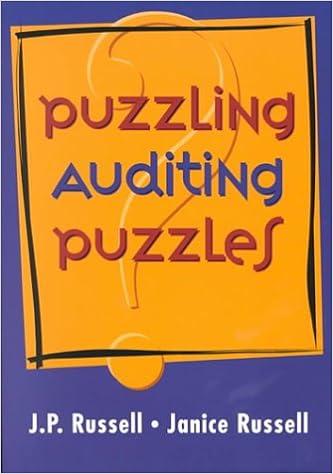Question
Financial Management Chapter 3 Case CompU has been in business for 3 years now, and things are going well. Bill Jobs has been able to
Financial Management
Chapter 3 Case
CompU has been in business for 3 years now, and things are going well. Bill Jobs has been able to expand the company onto two other campuses, and the companys sales and earnings have increased quickly. Since Bills background is not in finance, after interviewing many candidates he recently decided to hire Warren Lynch as CompUs first chief financial officer. Warren has a background in accounting and has quite a bit of experience in budgetary procedures. Warrens first task is to undertake a complete analysis of the firms financial condition, including strengths and weaknesses, in order to develop sound financial plans for additional future expansion.
Using the financial statements and industry standard ratios below, develop a complete time series and cross-sectional analysis of CompUs financial condition including strengths and weaknesses of CompU.
Prepare common size balance sheets and income statements for 2011 and 2012 and address changes and concerns.
Warren also believes the DuPont method of analysis is also a good way to see how the company is generating returns to its owner. Prepare a DuPont analysis for both CompU and the industry and discuss CompUs performance as compared to its industry.
After analyzing the data, what conclusions and recommendations would Warren be justified in making his report to Bill? What areas of CompUs operations are in greatest need of immediate attention? Prepare a planned course of action for the solution of the firms most pressing problems.
Standard Industry Ratios
Current ratio 3.50
Quick ratio 1.50
Average Collection period 30 days
Inventory turnover 5.00
Total asset turnover 1.00
Debt ratio 45.0%
Times interest earned 4.10
Gross profit margin 25.0%
Net profit margin 8.0%
Return on total assets 8.0%
Return on equity 14.50%
Financial Leverage Multiplier 1.81
CompU, Inc.
Comparative Balance Sheets
December 31, 2011 December 31, 2012
Assets
Cash $ 50,000 $ 10,000
Accounts Receivable 100,000 120,000
Inventory 150,000 150,000
Total Current Assets $ 300,000 $ 280,000
Fixed Assets 1,200,000 1,480,000
Less: Accumulated Depreciation (500,000) (560,000)
Total Fixed Assets $ 700,000 $ 920,000
Total Assets $1,000,000 $1,200,000
Liabilities and Stockholders Equity
Accounts Payable $ 40,000 $ 42,000
Accruals 20,000 24,000
Notes Payable 50,000 224,000
Total Current Liabilities $ 110,000 $ 290,000
Long-term debt 200,000 200,000
Common Stock 200,000 200,000
Retained Earnings 490,000 510,000
Total Liabilities and Stockholders Equity $1,000,000 $1,200,000
CompU, Inc.
Income Sheets
December 31, 2011 December 31, 2012
Sales $1,000,000 $1,200,000
Cost of Goods Sold 675,000 900,000
Gross Profit 325,000 300,000
Operating Expenses:
S, G, & A 100,000 114,000
Depreciation 50,000 60,000
Total Operating Expenses 150,000 174,000
Operating Profit 175,000 126,000
Interest Expense 25,000 39,000
Net income before taxes 150,000 87,000
Taxes 60,000 34,800
Net income after taxes 90,000 52,200
Step by Step Solution
There are 3 Steps involved in it
Step: 1

Get Instant Access to Expert-Tailored Solutions
See step-by-step solutions with expert insights and AI powered tools for academic success
Step: 2

Step: 3

Ace Your Homework with AI
Get the answers you need in no time with our AI-driven, step-by-step assistance
Get Started


